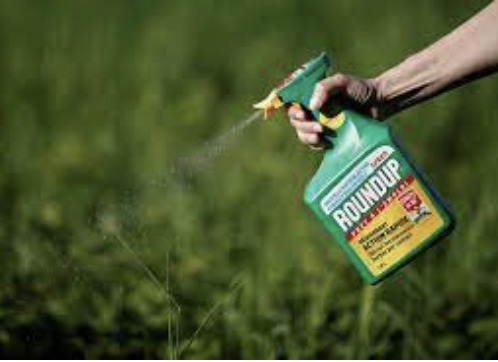- Have any questions?
- +1 905-239-3900
- info@mynaturalclinic.com
Have You Heard of Glyphosates?

Warming Socks: Why and When to Use
June 30, 2021
Are Your Hormones “Off” ?
August 6, 2021Written by Dr. Sandra Miranda, ND
Glyphosates is one of the world’ most common herbicides. It is the active ingredient in popular weed-control products like Roundup, Rodeo and Pondmaster. It is used in lawns, greenhouses, forest plantings and unfortunately, it is also sprayed in staggering quantities on most commercially grown staples crops, including canola, corn, cotton, soybeans, alfalfa, sugar beets and wheat.
Even the World Health Organization (WHO)’s International Agency for Research on Cancer (IARC) classified it as a “probable human carcinogen”. A growing body of research is also documenting glyphosates as a detrimental endocrine disruptor (which means it makes your hormones go off balance). Last but not least, it also kills beneficial gut bacteria creating more leaky gut problems which can lead to food sensitivities and other inflammatory health concerns.
Now, you don’t need to worry about having a small amount of exposure to glyphosates but the problem is that it is so prevalent that we are surrounded by it- it is in our food, water and air!
It is the long-term exposure and the lack of elimination from our body that may be a concern.
Some reports show that long-term exposure may cause the following:
- Increased risk of cancer
- Liver and kidney damage
- Reproductive risks and for pregnant women and children
Here are some recommendations on how to best avoid glyphosates:
- Buy organic products. This will help to reduce your exposure but will not eliminate it 100%. Glyphosates have been banned in organic farming but in a World Health Organization report, 1/3 of organic oats still tested with traces of glyphosates.
- Eat as low in the food chain as possible: This is a good advice for a number of reasons; avoiding glyphosates is a big one.
- Avoid all GMO foods: including processed and packaged foods containing non-organic corn, soybean, and sugar in all their varieties. Organic means non-GMO.
- Choose vinegar as a home weed killer: Don’t use Roundup!

